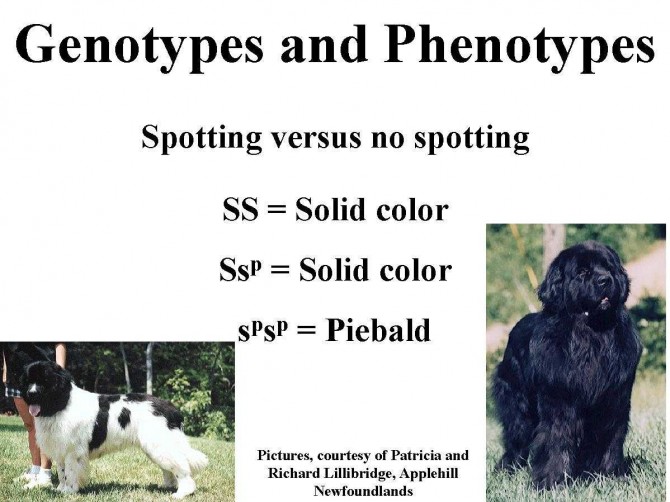First Internet course on canine genetics is offered by Cornell University
By H. Roger Segelken
Science educators at Cornell University's College of Agriculture and Life Sciences hope dog-lovers can sit-and-stay by their computers for six weeks. That's how long it takes to complete a new home-study course on canine genetics via the Internet.
Most students in the first online class of canine-genetics are dog breeders on three continents, and more veterinarians are expected to take the course for continuing education when the curriculum is accredited by their professional organizations. But the distance-learning course is open to anyone with an interest in the vast array of canine traits — from size, shape and coat color to temperament and predisposition to disease — that are determined by genetic inheritance.
"Of course you don't really have to sit at your computer for six weeks straight," said John Pollak, the Cornell professor of animal science who developed the online course. "We anticipate students will spend a total of 36 to 42 hours to complete the lectures, reading and laboratory exercises, for an average of six to seven hours a week. Plus, we also offer an abbreviated, three-week primer version of the course for those who seek just basic genetics information on dogs."
Using voiced-over PowerPoint presentations with animated illustrations, annotated readings, lab exercises that are graded by teaching assistants via e-mail and web-based discussion boards with Cornell faculty members and John Armstrong, faculty member at the University of Ottawa, the six-week course in canine genetics covers seven topics:
- basic concepts and definitions in animal genetics;
- probabilities and their use in predicting outcomes;
- sex linkage and other modes of inheritance;
- two-loci interactions;
- testing hypotheses for genetic inheritance;
- linkage; and
- selection against recessive alleles using molecular information.
The six-week course also includes an online symposium with lectures by four distinguished faculty members from Cornell's College of Veterinary Medicine, speaking on canine genome mapping and on the role of genetic inheritance in dogs' eye disorders, disorders in sexual development and bleeding disorders.
The fee for the six-week course is $300, or $175 for the three-week version, with group discounts available for five or more students who enroll together. More information and registration instructions are found at the Canine Genetics course.
Professor of animal science Toni Oltenacu, another of the three core faculty members for the online Canine Genetics course, said the class offers almost all the resources of Cornell's Ithaca campus -- without leaving home. "We try to provide plenty of opportunity for student-to-teacher interaction, with supported learning and mentoring as it occurs in a real classroom," he said. "Compared to lecturing in a classroom, this is actually a lot more work for us because we want to respond quickly and make students feel like they are part of a community of learners who are not isolated in cyberspace."
The third Canine Genetics course faculty member is Liz Hare, a postdoctoral associate in animal science at Cornell. Teaching assistants are Cornell students who have completed advanced courses in genetics.
So far the program seems to be working for distance-learning students who began pilot-testing the course earlier this year. "I was hoping for a better understanding of the role that genetics plays in the inheritance of both desirable and undesirable traits, and the course has exceeded all my expectations," said Susan Cochran, a breeder of Cavalier King Charles spaniels in Easley, S.C. Following her first experience with distance learning, Cochran said she is "seriously considering pursuing a college degree via online classes."
In Chittenango, N.Y., Gina Bisco predicted that advances in DNA testing and completion of the Canine Genome Project will revolutionize dog breeding, and she wants enough scientific understanding to be on the front lines of the revolution. "I've read dog genetics books and articles and I understand bits and pieces, but I didn't grasp the concepts well enough to apply them to real problems," said Bisco, a member of the English Shepherd Club's genetics committee and self-described "Scotch collie fan." She hopes this course "will help me understand the technical and mathematical aspects of genetic concepts so I can learn to apply them"
Commenting on prerequisites, Pollak said some background in high-school or college-level biology and in mathematics is helpful to get the most out of the course.
And in Porto, Portugal, Pedro Santa Rita, a breeder of the nearly extinct Castro Laboreiro, the working dogs used by shepherds to protect flocks against wolves, called the distance-learning method "futuristic and stimulating." Santa Rita said that access to genetics information that he can't find in Portugal is especially important to him, and so are the contacts he is making, through the online class, with other dog breeders. "In the U.S.A., everyone knows the Portuguese water dog, but we have here other dogs that are not so popular, and some are highly endangered," Santa Rita said. "With this knowledge I can help preserve and improve our national breeds."
"We are seeing different levels of student interaction," Pollak said. "Some students in our pilot test are highly interactive with the faculty and other students in terms of questioning the material and providing items for the web-based discussion board. Others are less interactive, but that's really no different than what we see in typical classroom situation."
Although the Canine Genetics course is the first distance-learning class from Cornell on the topic for the general public, it is not quite the first of its kind. That honor goes to Applied Animal Genetics (Animal Science 321), which since 1996 has originated from the Cornell Computer-Assisted Teaching Center. Students at Penn State, University of Vermont, State University of New York and University of Massachusetts earn college credit by attending class in State College, Burlington, Cobleskill and Amherst. So do students who trek across a campus, "far above Cayuga's waters," in Ithaca.
Related websites:
- Department of Animal Science: https://ansci.cals.cornell.edu/undergraduate/curriculum-requirements/
- College of Veterinary Medicine: http://www.vet.cornell.edu/
Media Contact
Get Cornell news delivered right to your inbox.
Subscribe